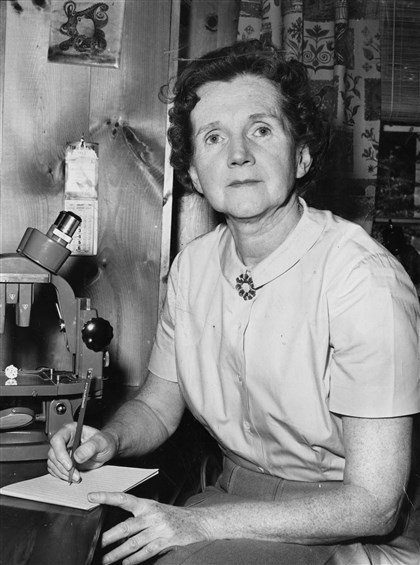
Reports” presented the program “The Silent Spring of Rachel Carson.” In it, Miss Carson said: On April 3, 1963, the Columbia Broadcasting System’s television series “C.B.S.

Quoting Jean Rostand, the French writer and biologist, she said: “The obligation to endure gives us the right to know.” She emphasized that she was not opposed to the use of poisonous chemical sprays-only their “indiscriminate use,” and, at a time when their potential was not truly known. Miss Carson’s position, as a biologist, was simply that she was a natural scientist in search of truth and that the indiscriminate use of poisonous chemical sprays called for public awareness of what was going on. This comparison was rejected quietly by Miss Carson, who in her very mild but firm manner refused to accept the identification of an emotional crusader. Some of miss Carson’s critics, admiringly and some not so admiringly, compared her to Carrie Nation, the hatchet-wielding temperance advocate. With the publication of “Silent Spring” in 1962, Rachel Louise Carson, the essence of gentle scholarship, set off a nationally publicized struggle between the proponents and opponents of the widespread use of poisonous chemicals Miss Rodell said that Miss Carson had had cancer “for some years,” and that she had been aware of her illness.

Her death was reported in New York by Marie Rodell, her literary agent. Of pesticides, died yesterday in her home in Silver Spring, Md. Rachel Carson Dies of Cancer 'Silent Spring' Author Was 56 By JONATHAN NORTON LEONARD achel Carson, the biologist and writer on nature and science, whose book “Silent Spring” touched off a major controversy on the effects Rachel Carson Dies of Cancer 'Silent Spring' Author Was 56


 0 kommentar(er)
0 kommentar(er)
